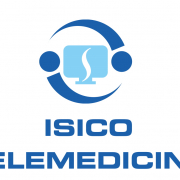Spinal Manual Therapy for Adolescent Idiopathic Scoliosis: A Systematic Review and Meta-Analysis of Randomized Controlled Trials
Every year, the Italian Scoliosis Study Group selects the best published papers on conservative spine treatment from the global scientific literature.
Here is the abstract from one of these papers.
Spinal Manual Therapy for Adolescent Idiopathic Scoliosis:
A Systematic Review and Meta-Analysis of Randomized Controlled Trials
Yan Sun, Yong Zhang, Haoning M, Mingsheng Tan, Zhihai Zhang
Biomed Res Int. 2023 Jan 4;2023:7928429.doi: 10.1155/2023/7928429.eCollection 2023.
Abstract
Objective: We conducted this meta-analysis to provide better evidence of the efficacy of manual therapy (MT) on adolescent idiopathic scoliosis (AIS).
Methods: All RCTs of MT for the management of patients with AIS were included in the present study. The treatment difference between the experimental and control group was mainly MT. The outcomes consisted of the total effective rate, the Cobb angle, and Scoliosis Research Society-22 (SRS-22) questionnaire score. Electronic database searches were conducted from database inception to July 2022, including the Cochrane Library, PubMed, Web of Science, Embase, Wanfang Data, CNKI, and VIP. The pooled data were analyzed using RevMan 5.4 software.
Results: Four RCTs with 213 patients in the experimental group were finally included. There are 2 studies of standalone MT in the experimental group and 3 studies of MT with identical conservative treatments in the control group. Three trials reported total effective rate, and a statistically significant difference was found (P = 0.004). Three trials reported Cobb angle, and a statistical difference was found (P = 0.01). Then, sensitivity analysis showed that there was a significant difference in the additional MT subgroup (P < 0.00001) while not in the standalone MT subgroup (P= 0.41). Three trials reported SRS-22 scores (P = 0.55) without significant differences.
Conclusion: There is insufficient data to determine the effectiveness of spinal manipulation limited by the very low quality of included studies. High-quality studies with appropriate design and follow-up periods are warranted to determine if MT may be beneficial as an adjunct therapy for AIS. Currently, there is no evidence to support spinal manipulation.





Leave a Reply
Want to join the discussion?Feel free to contribute!